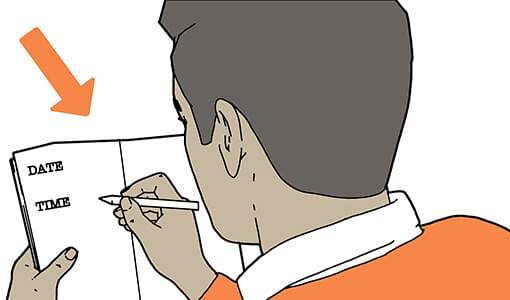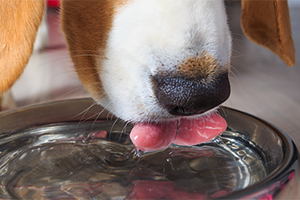This month, he tells us about a case of a dog receiving a snake bite.
A few weeks ago Archie, an eight-month cocker spaniel, was brought into my surgery after a walk along the banks of the local river. His owners informed me Archie had shot out of the undergrowth and run back to them in distress and limping slightly.
On examination, Archie had a swollen left paw with two small puncture wounds visible on the side of the paw. My suspicion was that Archie had been bitten by an adder.
Although adder bites are rare, here’s what you need to know about them, why they might have bitten your dog and how to treat them…

















